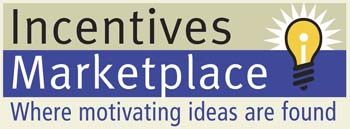Creative Employee Recognition Program Ideas to Inspire Your Workforce
Many organizations face challenges in retaining top talent and keeping employees motivated in today’s fast-paced workplace. One of the most effective strategies for cultivating a positive company culture and boosting productivity is implementing a robust employee recognition program. When done right, recognizing your team’s contributions can increase engagement, improve morale, and even enhance customer satisfaction.
Whether you’re a small business owner or part of a Fortune 500 company, the key lies in creating a thoughtful and personalized recognition strategy. Let’s explore creative employee recognition program ideas that can truly inspire your workforce and help your organization thrive.
Why Employee Recognition Matters
Before diving into the ideas, it’s important to understand the value of employee recognition. Numerous studies show that recognition is directly tied to increased job satisfaction, better employee retention, and stronger performance.
When employees feel seen, valued, and appreciated, they’re more likely to stay with their company, give their best effort, and become brand ambassadors. Recognition doesn’t have to be extravagant to be effective—what matters most is sincerity and consistency.
1. Personalized Awards Based on Interests
One-size-fits-all rewards often fall flat. Instead, tailor recognition to each employee’s personal interests or hobbies. Is someone a coffee connoisseur? A high-quality espresso machine might hit the mark. Does another team member love the outdoors? A new set of hiking gear could be perfect.
Partnering with a provider like Incentives Marketplace can streamline this approach. With over 13,000 expertly selected reward options, you can offer meaningful choices that resonate with each employee’s unique lifestyle.
2. Peer-to-Peer Recognition Platforms
Sometimes, the most meaningful praise comes from colleagues. Implement a peer recognition system that allows employees to celebrate each other’s efforts. This can be as simple as a digital shout-out board or as structured as a points-based system that employees use to nominate coworkers for rewards.
Peer recognition not only boosts morale but also fosters collaboration and strengthens team bonds.
3. On-the-Spot Recognition
Recognition doesn’t always need to wait for an annual review or formal ceremony. On-the-spot recognition empowers managers and coworkers to acknowledge great work immediately. A handwritten thank-you note, a $10 gift card, or a surprise afternoon off can have a significant impact.
The immediacy of this approach reinforces positive behaviors and creates a culture of appreciation.
4. Milestone Celebrations Beyond Work Anniversaries
Recognizing tenure is a great start, but milestones can go beyond work anniversaries. Celebrate the successful launch of a project, the first closed deal, or even a personal goal an employee has achieved, like completing a marathon or getting certified in a new skill.
Create a recognition calendar to keep track of these events and use them as opportunities to connect and celebrate.
5. Experiential Rewards
Not all rewards need to be tangible. Offering experiences as rewards—like spa days, concert tickets, cooking classes, or weekend getaways—creates lasting memories that employees associate with your company.
Incentives Marketplace offers access to a wide range of experiential rewards, making it easy to match the right experience with the right individual.
6. Monthly or Quarterly Spotlight Awards
Create a recurring recognition program in which a panel of employees nominates a teammate who goes above and beyond. The selected individual could be featured in a newsletter, receive a trophy, and receive a reward of their choosing.
This not only highlights outstanding work but also sets a benchmark for excellence and inspires others.
7. Team Recognition Days
Rather than celebrating individual accomplishments, consider recognizing entire teams for their collaborative achievements. Host a special lunch or team-building outing, or provide branded merchandise as a thank-you.
Recognizing team wins encourages group cohesion and drives collective success.
8. Leadership Recognition Initiatives
Leadership plays a vital role in company culture. Launch a program where upper management regularly recognizes team members in public forums like town halls, company meetings, or newsletters.
Hearing appreciation from leadership can amplify the impact and show that the entire organization values contributions at every level.
9. Virtual Recognition Walls
If your workforce is remote or hybrid, build a digital recognition wall where team members can post thank-you messages, accomplishments, or project wins. These can be showcased on your internal portal or shared during virtual meetings.
This keeps recognition alive in digital spaces and ensures remote employees feel seen.
10. Recognition Through Learning Opportunities
Some employees are motivated by growth. To recognize accomplishments, offer access to professional development courses, conferences, or mentorship programs.
This shows you’re not only appreciative but also invested in their future.
11. Social Media Shoutouts
Feature top performers on your company’s social media channels. Share their achievements, photos, and a few words about what makes them stand out.
This boosts their personal brand and showcases your company as one that values its people—a win for recruitment and retention.
12. Wellness-Centric Recognition
Link your recognition program with wellness initiatives. Reward healthy habits like participating in a step challenge, quitting smoking, or attending regular wellness workshops with fitness gear, health trackers, or meal delivery subscriptions.
This approach promotes physical and mental well-being while encouraging engagement.
13. Gamified Recognition Programs
Incorporate elements of gamification such as points, levels, and badges into your recognition system. Employees can earn points for achievements and trade them for rewards of their choosing.
Gamification makes recognition fun and interactive, increasing participation across teams.
14. “Thank You” Thursdays or Recognition Rituals
Make recognition a regular event. Designate a day each week or month for saying thank you. Create a ritual around it, such as an open-mic thank-you session, handwritten notes from managers, or small surprise tokens.
Rituals become part of your culture and keep appreciation top-of-mind.
15. Employee-Driven Award Categories
Allow employees to create their own award categories, such as “Best Zoom Background,” “Team Spirit MVP,” or “Problem-Solving Pro.”
This injects humor and creativity into your recognition program, making it more inclusive and enjoyable.
16. Recognition That Pays It Forward
Empower employees to choose a charitable donation as their reward. This gives them the opportunity to support causes they care about while being recognized for their contributions.
Partnering with Incentives Marketplace makes it easy to include philanthropic options in your reward catalog.
17. Create a Recognition Committee
Form a diverse committee of employees from different departments to manage and evolve your recognition program. This will ensure that it stays fresh, relevant, and reflective of the entire organization’s values.
It also creates buy-in and encourages broader participation.
18. Custom Trophy or Badge Designs
Instead of generic plaques, design custom awards that reflect your company culture or the specific achievement. Maybe it’s a 3D-printed trophy, a digital badge for their email signature, or a quirky item that represents a team win.
Creative awards become talking points and cherished keepsakes.
19. “Lunch with Leadership”
Offer recognized employees the chance to have lunch or a virtual coffee with a company leader. It’s a great opportunity for mentorship and relationship-building while also showing appreciation in a unique and meaningful way.
20. Anniversary Time Capsules
Celebrate work anniversaries with personalized time capsules. Ask coworkers to contribute messages, photos, or memories. Package them in a keepsake box for the employee to open and enjoy.
This thoughtful gesture deepens the sense of belonging and community.
Bringing Recognition Ideas to Life
Having a diverse set of employee recognition program ideas is just the beginning. Execution and consistency are key. That’s where expert partners like Incentives Marketplace make all the difference.
With more than 21 years of experience helping organizations engage and reward their people, Incentives Marketplace offers:
- Over 13,000 incentive options, from luxury items to everyday essentials
- Seamless logistics—shipping over 1 million awards per year
- Flexible programs tailored to your company size and culture
- Expert guidance to ensure results
Whether you’re trying to boost employee engagement, improve retention, or enhance team spirit, Incentives Marketplace provides the expertise, tools, and support to create a recognition program that delivers real impact.
Ready to Inspire Your Team?
Recognition is more than a feel-good gesture—it’s a proven strategy for building a better business. Don’t leave it to chance.
Contact us today to learn how we can help you create a personalized, results-driven employee recognition program that makes your people feel valued, inspired, and excited to come to work. Because when your team wins, so do you.



